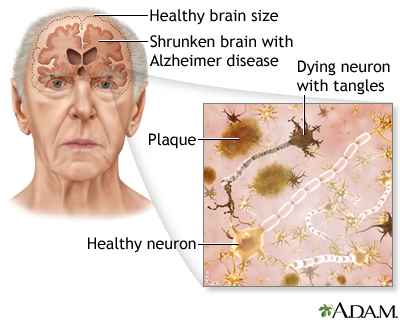The Startling Link Between Sugar and Alzheimer's

Alzheimer’s is now the third leading cause of death (behind cardiovascular disease and cancer). Roughly 15% of the population will be affected. The prevalence of dementia is expected to double over the next 20 years.
Alzheimer’s is characterized by memory loss, personality changes, mood issues, and burdensome dependencies most of us are loathe to experience.
Like most modern chronic diseases, Alzheimer’s is strongly linked to sugar consumption. In fact, it has been called “Type 3 Diabetes”.
Alzheimer’s is (in part) a condition where our brains lose the ability to use glucose for energy (likely through insulin resistance). This disrupts the mitochondria (energy producing parts of the cell neurons) leading to cellular apoptosis; which is essentially a process where cells commits suicide.

Fructose in particular has been implicated in the pathogenesis of Alzheimer’s.
A fascinating article in Frontiers in Aging Neuroscience, published in September 2020, states:
“…Fructose metabolism is a key initiating pathway for Alzheimer’s disease. (1)
The article goes on to say…
“We propose that Alzheimer’s disease is a modern disease driven by changes in dietary lifestyle in which fructose can disrupt cerebral metabolism and neuronal function.” (1)
How does it do this?
This is the fascinating part!
If I understand the science correctly, fructose consumption lowers energy in our cells to stimulate foraging and increased food intake. Fructose is also induces insulin resistance. Both are designed to help our bodies gain weight. (1)
In the words of this same article:
“Fructose is unique among nutrients because it activates a survival pathway to protect animals from starvation by lowering energy in cells in association with adenosine monophosphate degradation to uric acid. The fall in energy from fructose metabolism stimulates foraging and food intake while reducing energy and oxygen needs by decreasing mitochondrial function, stimulating glycolysis, and inducing insulin resistance.”
In other words, fructose - by design – encourages food consumption, weight gain, and insulin resistance. It is intended to temporarily fatten us up for winter. Eaten in moderate and appropriate amounts, we gain moderate and appropriate weight.
But today, fructose is bombarding our cells, including our brain cells, all year round. And in ridiculous (indeed deadly) concentrations. Our main sources of fructose these days are NOT HEALTHY WHOLE FRUITS IN SEASON but rather sucrose, high fructose corn syrup, fruit juice, honey, agave, etc. These sweeteners are present (in high concentrations) in candy, baked goods, bread, sweet drinks, ice cream, fast food, etc. A small piece of baking can contain the equivalent fructose load of 8-10 pieces of whole fruit.
This extreme amount of fructose leads to extreme cravings, food foraging, and weight gain. And of course, insulin resistance leads to diabetes and dementia (not to mention obesity and more).
But that is not all..
Research shows that artificial sweeteners are also problematic. For example, a large study of almost 5,000 participants identified the consumption of artificially sweetened beverages as a high-risk factor for stroke and dementia. (2)
Thus, if you want to remain bright minded into your senior years, sugar and artificial sweeteners are off the table.
In the book, The End of Alzheimer’s. Dr. Dale Bredesen, states:
“If you want to give yourself Alzheimer’s, start by eating sugar.” (3)
By the same logic, if you want to remain independent as long as possible, start by eliminating sugar.
No cookie is worth losing our mind over, is it?
—Florence
SOURCES:
(1) https://www.frontiersin.org/articles/10.3389/fnagi.2020.560865/full
(2) https://pubmed.ncbi.nlm.nih.gov/28428346
(3) Dr. Dale Bredesen, Author of the 2017 New York Times Best-Seller: “The End of Alzheimer’s”
Join Our Sugar-Free Tribe!
Sign up now to get the latest news, updates, and information about Sugar Detox and Sugar Addiction.
0 comments
Leave a comment